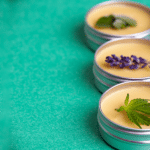Legalization has led to lower rates of cannabis use among teens, while middle-aged and elderly adults are adopting extracts for the aches of aging. Scientists led by Julie Bobitt at the University of Illinois have surveyed older adults in Colorado, trying to understand why seniors use cannabis and the barriers they encounter. Nearly 90% of people over 61 cite pain as a major motivation for cannabis use.
Older adults want more education on medical cannabis. They are confused about dosing, as well as the litany of different products available on the market. Many, having lived through the drug wars of Nixon and Regan, are anxious to talk with friends or even their doctors about cannabis. But when they do consult their primary care physicians, the doctors often decline to give information on cannabis or – worse yet – are wrong. One oncologist is quoted saying “there’s very little research done in regards to [cannabis and] cancer,” seemingly unaware that THC was approved by the FDA for managing certain cancer symptoms 34 years ago.
A number of people reported their doctors refused to provide a medical card, forcing them to the recreational market. The lack of medical insurance, along with the need to visit multiple doctors, creates a large financial burden.
Seniors emphatically emphasized their desire to delineate medical and recreational cannabis. They were excited to report that cannabis improved pain management and reduced their need for other pharmaceuticals (like opioids and benzodiazepines), many of which have heavier cognitive burdens than even a high dose of THC. Their medical beliefs about cannabis are largely predicated on dramatic personal experience. When asked about cannabis’s negative effects, seniors described the stigma more than specific side effects, and highlighted that alcohol is much more harmful, despite its broad acceptance.
The last common theme cited by these aging baby boomers is the stigma. They fear the disapproval of family, friends, and physicians. Some seem to resolve their cognitive dissonance by dichotomizing youth and elderly use: “The kids can get their hands on it, their little brains aren’t ready for it.” This brings the report full circle: educating people on the current science will dispel the myths that engender the stigma.
Read study: Qualitative Analysis of Cannabis Use Among Older Adults in Colorado
Adrian Devitt-Lee is a research scientist and longtime Project CBD contributor. © Copyright, Project CBD. May not be reprinted without permission.







